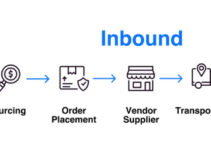Lidl is a discount retail chain store German multinational company. Josef Schwarz founded the discount retail store company in 1932. Today, we’ll discuss the value chain analysis of Lidl supply chain analysis; primary and supporting activities in the process of value chain analysis Example Company. They are inbound and outbound logistics, operations, marketing, and customer service; infrastructure, HRM, technology, and procurement as an application of the value chain analysis process.
Suppliers and Vendors of Lidl
- Griffiths Family Farm
- Evolution Food
- Joseph Heller
- L’Oreal
- Boston’s Biscuits
- Traditional Norfolk Poultry
The Value chain analysis of Lidl supply chain analysis would analyze the primary and supporting activities in the process of value chain analysis. They’re inbound and outbound logistics, operations, marketing, and services; infrastructure, HRM, technology, and procurement. Here’s supply chain analysis of Lidl value chain analysis company example as follows;
Value Chain Analysis of Lidl
Let’s discuss the primary and supporting activities involved in the process of value chain analysis of Lidl supply chain analysis. It is an application of value chain analysis based on Porter’s model; some of the key elements and components of value chain analysis are as follows;
Primary Activities of Lidl
The primary activities are directly involved in the production of products and goods and adding value to the retail discount chain store company. Some of the five main primary activities in the value chain analysis of Lidl supply chain analysis are as follows;
Inbound Logistics of Lidl
I-Large Suppliers Networks
Lidl has established a very large supplier network comprising thousands of suppliers and vendors across the world. The retail chain discount store brand offers over 1800 branded products and goods at its chain stores. The suppliers and vendors network helps the company to ensure the smooth availability of products and goods at its stores.
- Garden furniture suppliers
- Sports equipment suppliers
- Gaming suppliers
- Hardware suppliers
- Shoe suppliers
- Textile suppliers
- Food suppliers
- Cosmetics and household products suppliers
II-Corporate Social Responsibility
Lidl invests billions of dollars in building an effective and efficient relationship with suppliers and vendors. The retail chain discount store brand has a strong commitment to corporate social responsibility. It comprises of following;
- Ethical and responsible sourcing
- Biodegradable Plastic packaging
- Agriculture guide
- Complying with human rights standards
- Ethical trade requirements
III-Transparent Suppliers
Lidl follows a full disclosure policy and the company is transparent about its entire supply chain network. It comprises ethical sourcing of raw; thousands of suppliers network, labor and logistics, packaging, distribution centers, manufacturers, and processors. Complete transparency of the supplier’s network would help the company to earn the trust and confidence of suppliers.
Outbound Logistics of Lidl
I-Transport and Logistics
Transport and logistics are the backbone of Lidl’s various outbound operations and processes. They move stock, inventory, and goods from manufacturing suppliers to the warehousing facilities, and then to the retail chain discount stores in various countries worldwide.
However, the retail chain discount store brand also partners up with various 3rd party logistics service providers. They provide transportation and logistics services to the company by distributing goods to the customers.
II-Sustainable & Electric Transport
Lidl is implementing sustainable and electric transport and logistics throughout its operational processes. It helps the company to show its commitment to the environmental sustainability initiative and reducing the carbon emission rate.
Operations of Lidl
I-Warehouses and Distribution Centers
Lidl has established a network of approximately 220 distribution centers in 31 countries across the world. They receive products and goods from the manufacturing companies and production suppliers; temporarily store, organize, and manage the inventory, and then deliver it to the end consumers.
II-Store Operations
Lidl has more than 12200 retail stores in various countries worldwide. The retail discount store company offers 1000s of products and goods at its stores; properly maintaining the expiry of the stock, shifting them to the required shelves, and reordering for the short items.
Marketing & Sales of Lidl
I-Low Price Positioning
Lidl has established its position as a retail chain discount store Company and it helps the company to target a wide range of price-conscious and middle-income customer markets. The focus of the chain store brand is to pass on the saving favor to the end consumers.
II-Marketing& Advertisement
Lidl launches various types of marketing and advertisement campaigns on various media channels for the promotion of its products and brands. They are like social media and digital media platforms, mobile application advertising, email marketing, and social media engagement. However, it allows them to connect with the users and targeted customers digitally.
Services of Lidl
Lidl offers a wide range of products and services to the end consumers in dozens of categories of hundreds of brands. The vast variety of products and services helps the company to improve customer satisfaction and make them repeat visitors.
- Online shopping and home delivery service
- Customer service chatbot
- Tracking customer order
Supporting Activities of Lidl
Supporting activities are indirectly involved in the production of products and goods and adding value to the retail chain discount store company. Some of the main supporting activities in the value chain analysis of Lidl supply chain analysis are as follows;
Infrastructure of Lidl
Lidl has established a very large infrastructure of production and manufacturing suppliers, distribution centers, warehouses, discount retail chain stores, and a supply chain and distribution network. Well-development infrastructure helps the company to smoothly perform its various operations and timely deliver the finished goods to the store shelves.
HRM of Lidl
Lidl has employed roundabout 115000 employees to manage its global retail operations. The human resource department of the discount store company plays a key role in building a sustainable working environment. It comprises providing equal employment opportunities for all regardless of any differences.
Technological Development of Lidl
Lidl invests a significant amount of capital resources in technological development. It is like electric vehicle charging stations, automation system processes, robotic technology in the warehouse, and demand forecasting systems. However, technological development helps the company to smoothly and efficiently perform its various operations; saving the wastage of time and resources.
Procurement of Lidl
Lidl is highly careful and cautious about ethical sourcing and procurement of retail consumers’ goods and products. The company ensures that the suppliers’ companies are complying with the human rights standards, trade regulations, and environmentally sustainable practices.
Conclusion: Lidl Value Chain Analysis Example Company | Application of Value Chain Analysis Process
After an in-depth study of the value chain analysis of Lidl; we have realized that Lidl is the world’s leading discount retail chain store company. If you are learning about the Lidl value chain analysis example company; then you should keep in mind the abovementioned primary and supporting activities. They’re inbound and outbound logistics; operations, marketing and sales, and services; infrastructure, procurement, HRM, and technological development as an application of the value chain analysis process.
Ahsan is an accomplished researcher and has a deep insight in worldly life affairs. He goes Live 3 days a week on various social media platforms. Other than research writing, he’s a very interesting person.


